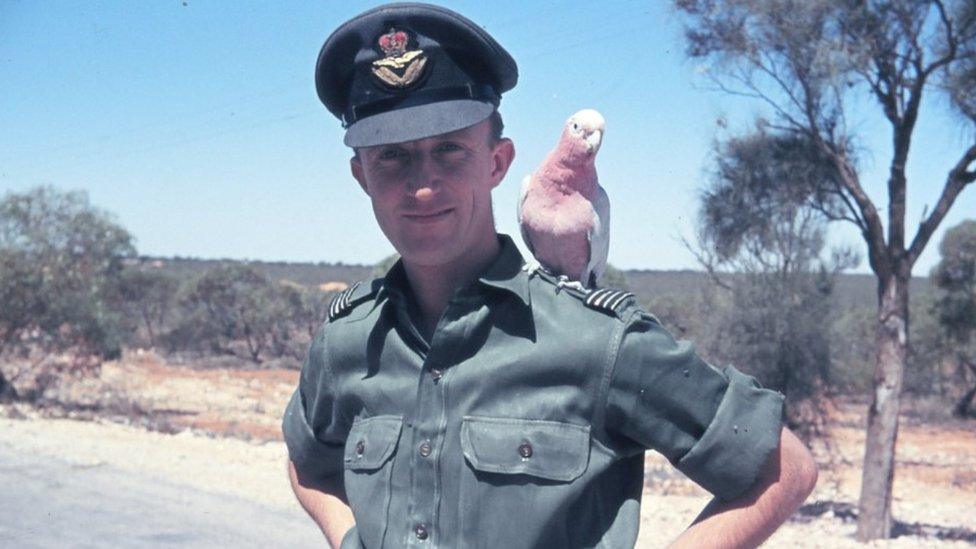Radiation a 'hidden bullet' says testing veteran
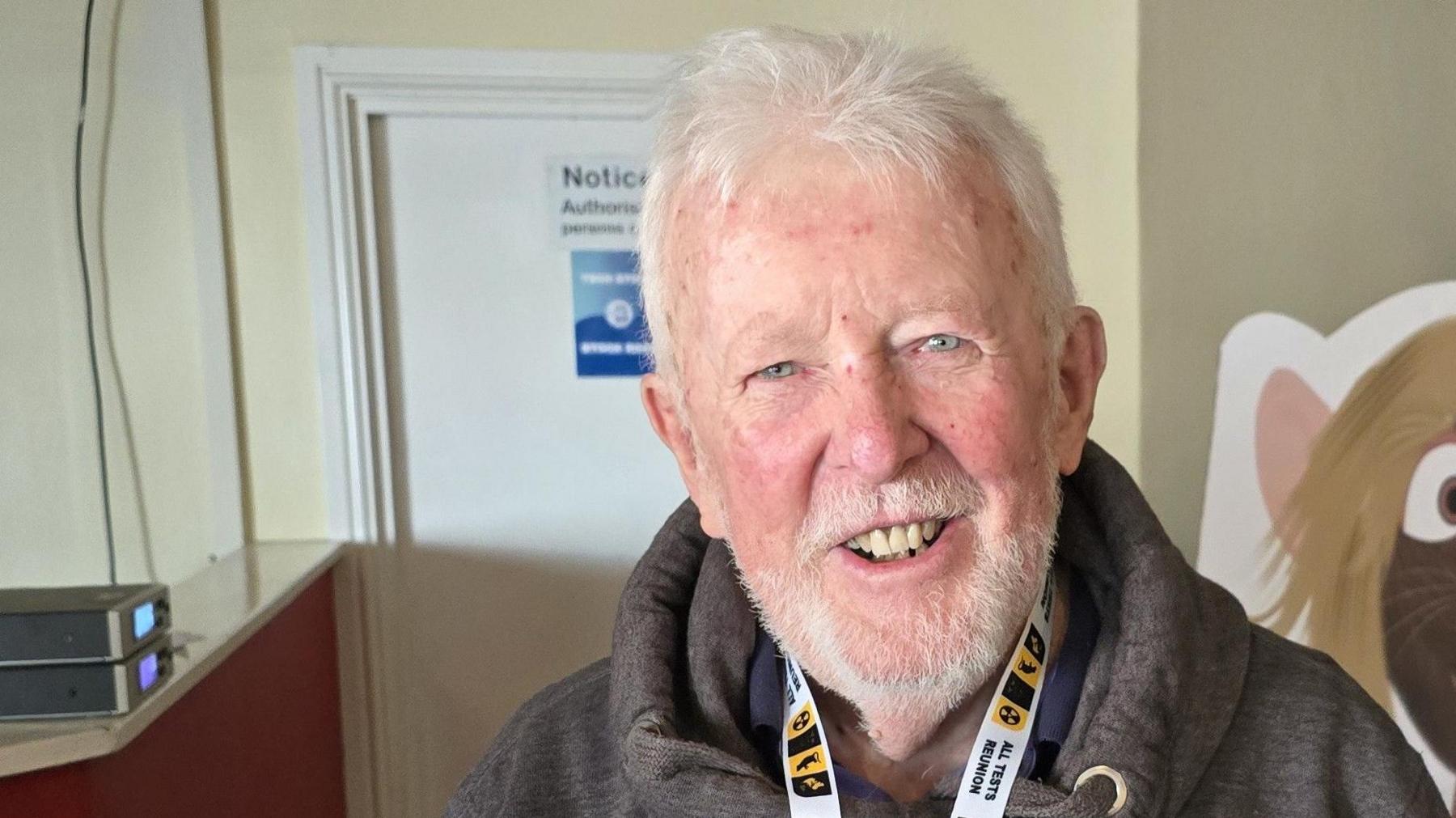
Terry Hughes believes his skin cancer is directly linked to radiation he was exposed to
- Published
A veteran who took part in nuclear tests in the 1950s has described radiation as "a hidden bullet" and blames it for his own son being unable to have children.
Captain Terry Hughes was 19 when he was sent to Christmas Island in the Pacific, where bombs were detonated in a series of infamous tests. He has suffered a range of health problems since.
Now 86, he is part of LABRATS, a campaign group preparing to launch civil legal action against the Ministry of Defence (MoD) in an attempt to gain access to their medical records from the test period.
The MoD said it was looking into unresolved questions regarding medical records as a priority, and the work would be "comprehensive".
In the 1950s and 60s, 22,000 servicemen were sent to Australia and the South Pacific as part of the UK's nuclear programme.
Alongside scientists, they helped test nuclear bombs to aid Britain's defence.
The veterans say their full medical records are being illegally withheld, and harm was done to them and their families by the MoD's failure to keep, maintain and release them.
Survivors and their descendants allege they have suffered liver, bone, bowel, skin and brain cancers, as well as leukaemia, heart disease, stillbirths and generational birth defects as a result of exposure to the nuclear tests.
The MoD has said four large studies found no link between the tests and ill health., external
A study carried out by Brunel University, external in 2022 stated the nuclear test veterans were no more likely than other veterans to pass on changes in their DNA to their descendants.
But LABRATS contests these findings.
Captain Hughes, from Lydney in Gloucestershire, said he had suffered "various skin cancers" and was still concerned about the potential effect of the radiation on his children.
"The radiation acts as a hidden bullet - it just comes out as and when.
"A lot of people are affected - particularly the descendants. We've met a lot of the descendants who are very, very badly affected.
"It's obviously gone through the genes. My own son, he can't have children, I recognize, due to radiation problems as well," he said.
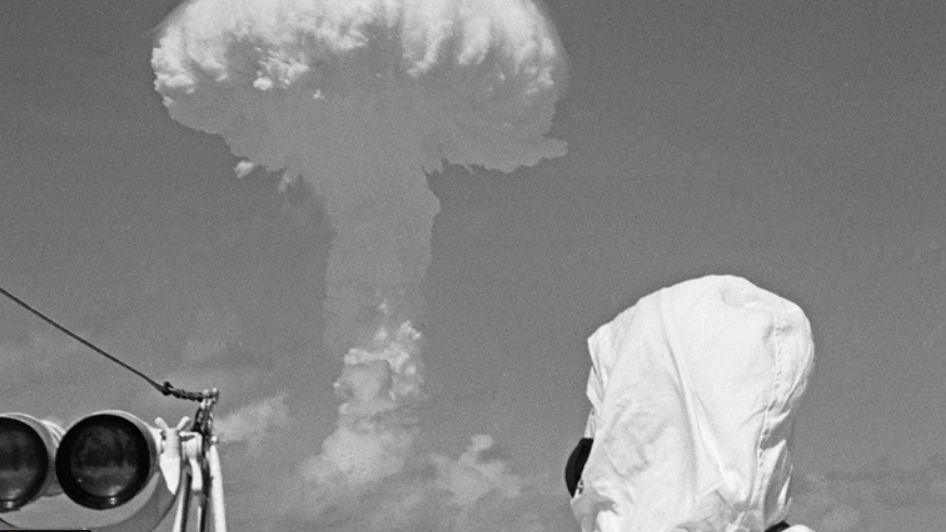
In the 1950s and 60s, 22,000 servicemen were sent to Australia and the South Pacific as part of the UK's nuclear programme
This week, more than 120 of the veterans and their descendants have gathered for a reunion in Weston-super-Mare to remember their sacrifice and discuss moving the LABRATS campaign forwards.
One of the women joining them is Susan Musselwhite.
Her father, Derek Musselwhite, was stationed at Christmas Island between 1956 and 1957 and "witnessed the big [tests]", Ms Musselwhite said.
Her father "walked out" on her family when she was eight years old, which she believes was due to the effects of post-traumatic stress disorder.
"I met him once before he died, and when he died he was riddled with cancer. He blamed everything on Christmas Island," she said.
Ms Musselwhite, who founded the LABRATS campaign group alongside Alan Owen in 2020, said she had many health issues which she thought were directly linked to the tests.
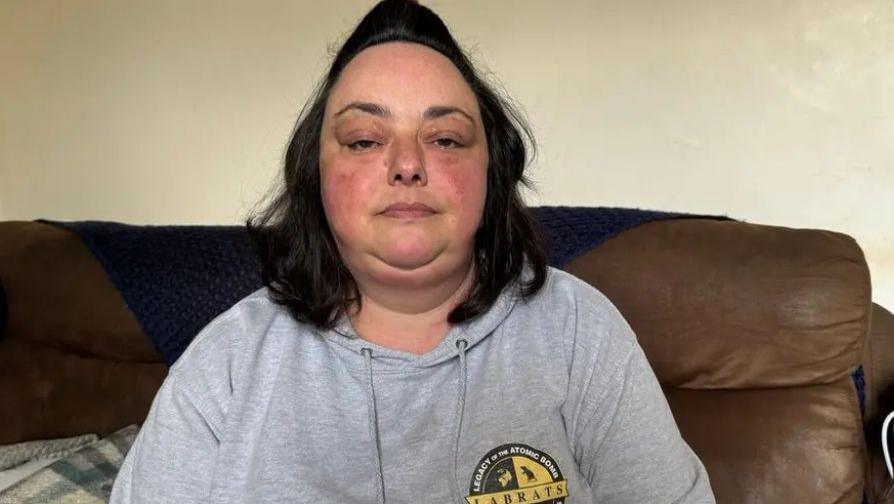
Susan Musselwhite says she considers herself lucky to be alive
"I've got chronic migraines, functional neurological disorder, I have an overactive brain function, I was born with Dwayne syndrome, thyroid eye disease.
"Graves' disease, diabetes, fibromyalgia, I have issues with my heart where it runs overly fast.
"None of us have been untouched by what our father witnessed," she said.
Despite her health issues, the 45-year-old from Devon, said she considered herself lucky to still be alive.
A Ministry of Defence spokesperson said they recognised the contribution the nuclear test veterans had made to national security.
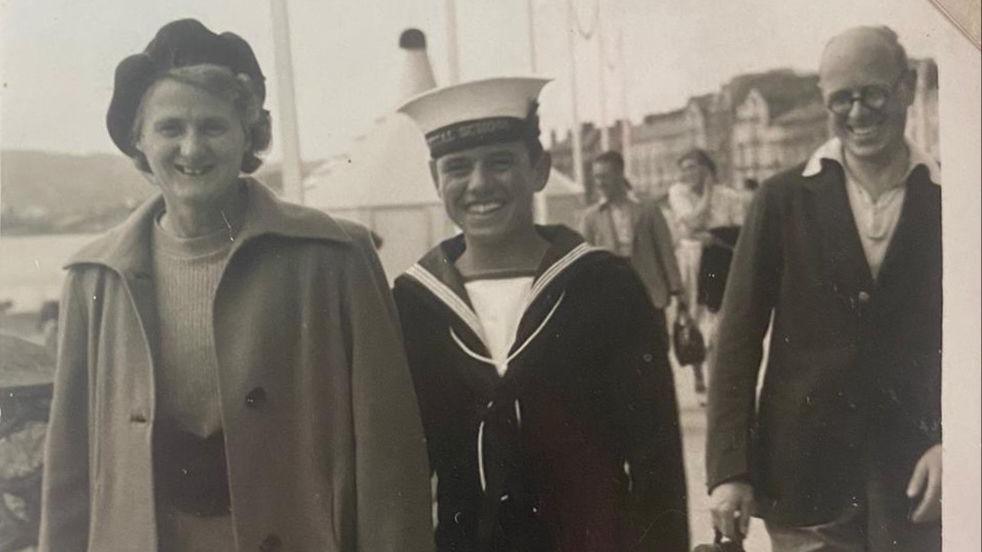
Derek Musselwhite (C) was sent to Christmas Island while he was in the Royal Navy
"The government is committed to working with veterans and listening to their concerns," they said.
"We have already amended the criteria for the commemorative Nuclear Test Medal to ensure those who took part in US atmospheric testing are also recognised.
They said Alistair Carns, the former Minister for Veterans and People, had commissioned officials to look into unresolved questions regarding medical records as a priority, and this work was under way.
They added: "This work will be comprehensive, and it will enable us to better understand what information the department holds in relation to the medical testing of service personnel who took part in the UK nuclear weapons tests, ensuring that we can be assured that relevant information has been looked at thoroughly."
Get in touch
Tell us which stories we should cover in Somerset
Follow BBC Somerset on Facebook, external and X, external. Send your story ideas to us on email or via WhatsApp on 0800 313 4630.
- Published25 June
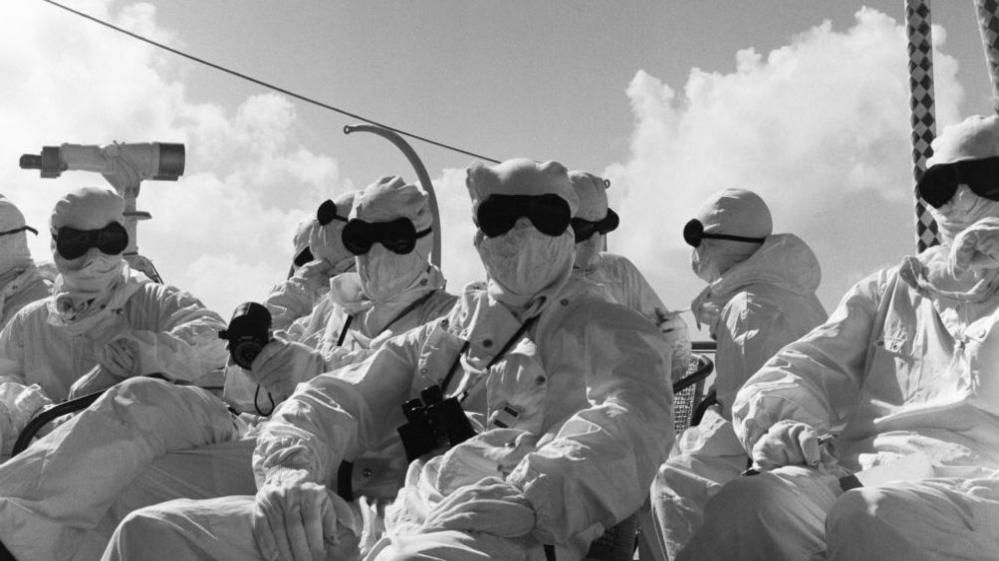
- Published19 March 2024
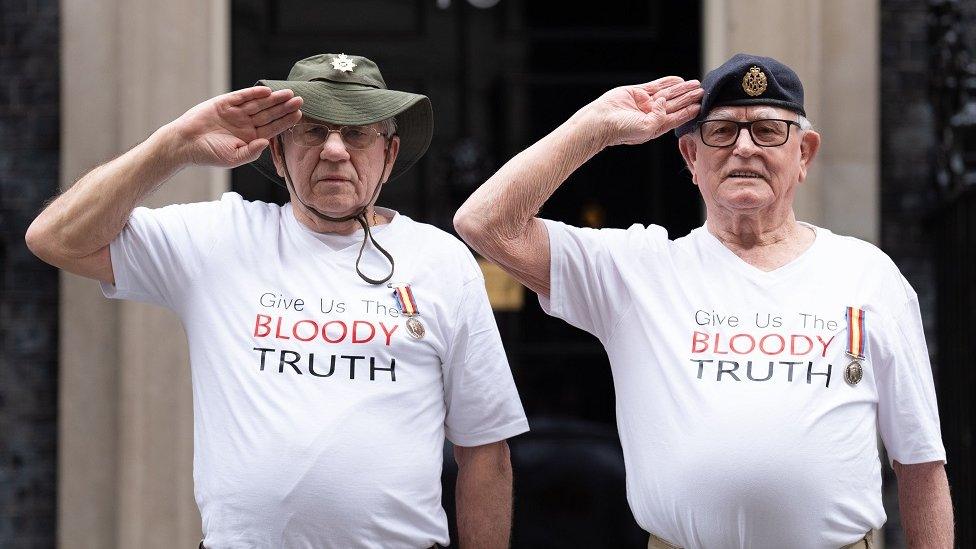
- Published30 May 2021
